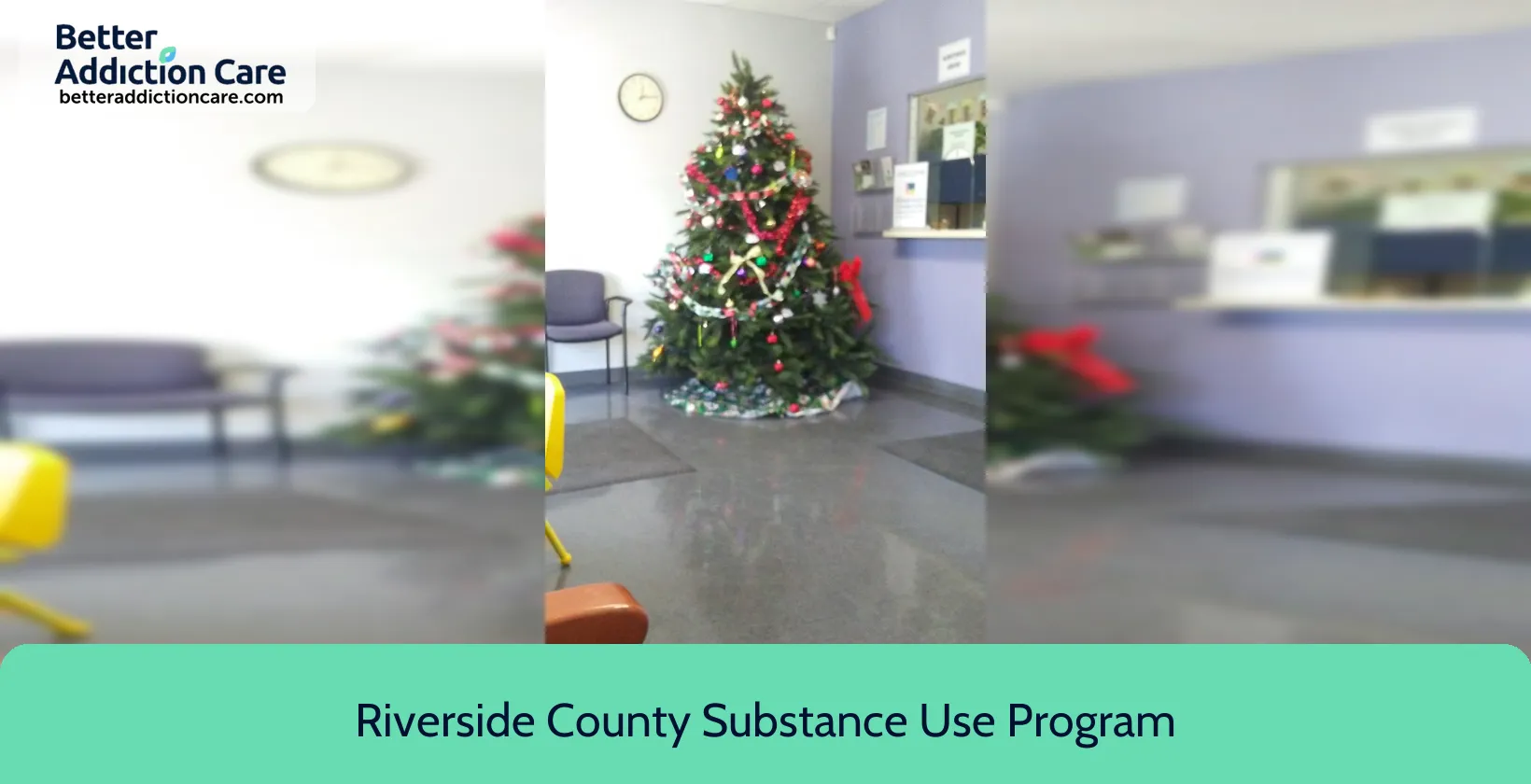Riverside County Department of Mental Health - Monroe street

Overview
Riverside County Department of Mental Health - Monroe street is a mental health treatment center for people seeking treatment near Riverside County. As part of their treatment modalities for recovery, Riverside County Department of Mental Health - Monroe street provides individual psychotherapy, cognitive behavioral therapy, and group counseling during treatment. Riverside County Department of Mental Health - Monroe street is located in Indio, California, accepting medicaid for treatment.
Riverside County Department of Mental Health - Monroe street at a Glance
Payment Options
- Medicaid
- Private health insurance
- Cash or self-payment
- Aetna
- Blue Cross and Blue Shield Association
Assessments
- Comprehensive mental health assessment
- Comprehensive substance use assessment
Age Groups
- Adults
- Young adults
Operation
- State government
Highlights About Riverside County Department of Mental Health - Monroe street
6.76/10
With an overall rating of 6.76/10, this facility has following balanced range of services. Alcohol Rehabilitation: 8.00/10, Drug Rehab and Detox: 6.00/10, Insurance and Payments: 6.53/10, Treatment Options: 6.49/10.-
Alcohol Rehabilitation 8.00
-
Insurance and Payments 6.53
-
Treatment Options 6.49
-
Drug Rehab and Detox 6.00
Treatment At Riverside County Department of Mental Health - Monroe street
Treatment Conditions
- Mental health treatment
- Substance use treatment
- Co-occurring Disorders
Care Levels
- Aftercare
- Outpatient
Treatment Modalities
- Individual psychotherapy
- Cognitive Behavioral Therapy
- Group counseling
- Trauma-related counseling
- Family counseling
Ancillary Services
Languages
- Sign language services for the deaf and hard of hearing
- Spanish
Special Programs
- Clients who have experienced trauma
- Persons 18 and older with serious mental illness (SMI)

Additional Locations
Contact Information
Read our Most Recent Article About Drug Addiction
DISCLAIMER: The facility name, logo and brand are the property and registered trademarks of Riverside County Department of Mental Health - Monroe street, and are being used for identification and informational purposes only. Use of these names, logos and brands shall not imply endorsement. BetterAddictionCare.com is not affiliated with or sponsored by Riverside County Department of Mental Health - Monroe street.











